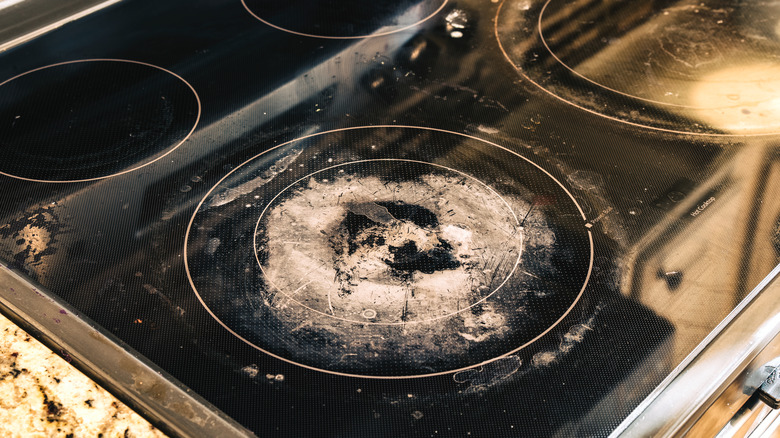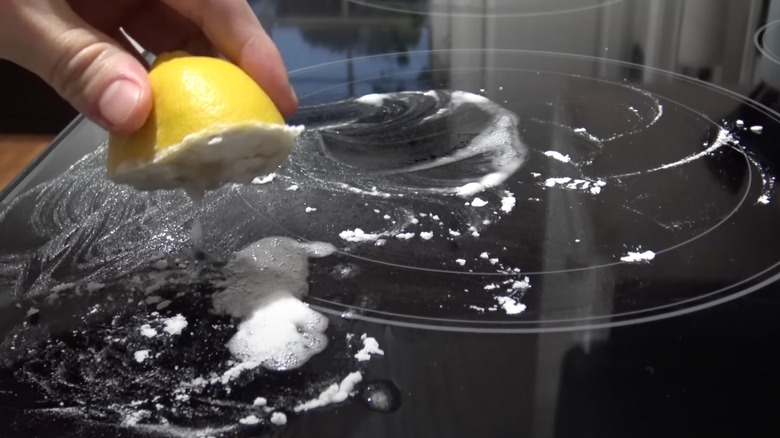The Fruity Ingredient That Leaves Your Greasy Glass Stovetop Dazzling
Although there's nothing better than a home-cooked meal — cleaning up afterward is less fun. This is especially true if you have a glass stovetop. It only takes some grease splatters to leave you with a mess that, when dry, can be difficult to remove. Unfortunately, things like steel wool and harsh, abrasive sponges should be avoided on glass cooktops, as they can leave pits and scratches on your stove's surface. These scratches can lead to costly repairs. Luckily, you can clean your stove's glass surface with nothing more than lemon juice, distilled white vinegar, and baking soda. When used in tandem, you'll have a powerful, all-natural, cleaning regimen that will banish even the most stubborn caked-on grime and grease.
The main mistake to avoid when cleaning with vinegar, and other acetic products, is using them on porous surfaces. Glass is non-porous, however, which makes it ideal for these cleaning products. Even better, these cleaning ingredients are affordable, which makes this hack budget-friendly. You can even use these products to clean other parts of your home, which means you'll get plenty of use out of these items. Here's how to clean a greasy, grimy glass stovetop with a few pantry staples.
Grab a lemon, baking soda, and vinegar
There are several ways you can carry out this hack. For starters, you can mix equal parts lemon juice and distilled white vinegar. If you don't have white vinegar, you can use apple cider vinegar. Once combined, soak a cloth in the solution and wipe your glass stovetop clean, or put the mixture in a spray bottle and spritz the grimy area before wiping it clean. If you find that this method doesn't remove caked-on food debris, you can up the ante with baking soda.
Begin by slicing a lemon in half, using the fruit to scrub your glass cooktop. Next, sprinkle some baking soda on the glass (you can also sprinkle it before you begin scrubbing with your lemon). There are tons of baking soda cleaning hacks and tips, and for good reason. This affordable product is a double-duty cleaning product, as it's abrasive. This means it can remove encrusted food with nothing more than some elbow grease. Luckily, it's not so abrasive that it can scratch glass cooktops, as they're much harder than other glass surfaces. When these ingredients combine, you'll see a chemical reaction occur between the acid and the baking soda, releasing carbon dioxide. This results in tiny bubbles that simultaneously work to break up stubborn grease. You can also use vinegar in place of a lemon, or store-bought lemon juice — whatever you have handy works!

